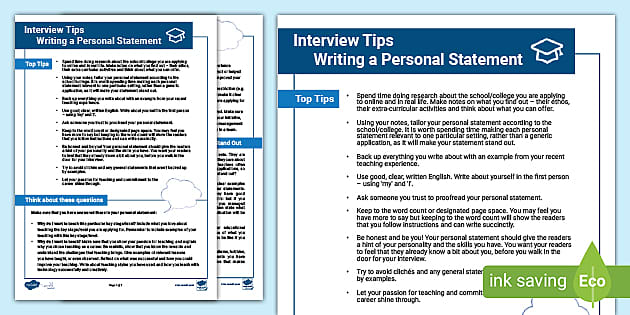


6 min
October 31, 2023
How to answer teacher training interview questions.
If you are reading this article, the chances are you have either just secured an interview for a place on a teacher training program or are hoping to secure one.
As all training providers may have slightly different interview processes, the first thing you should do to prepare for your interview is carefully check the instructions given to you by the provider. Some common interview day tasks could include one or more of the following:
Formal interview
Written/practical task
Group task/discussion
Meeting with students
Presentation
In terms of the formal interview, whether you are going down the ITT, PGCE, SCITT or Apprentice route, a key thing the interview panel will be looking for is your genuine interest in working with young people.
With this in mind, if you haven’t already done so, it is a good idea to gain some in school experience prior to your interview because stand out candidates link their responses to relevant experience.

Regardless of the question, good interview answers give clear examples to support your thinking. A great way to approach this is with the STAR method: Situation – Task – Action – Result. You can use this to help structure your responses and a bonus of using STAR is you can pre-plan a little bank of them ahead of your interviews to help. For example:
Q: Can you give an example of how you helped a child learn something?
A: During my work experience, I was given the opportunity to lead a short 20 minute activity with the class. In 2 groups they had to prepare opposing debates for why the book they were studying was, or was not relevant to a contemporary audience. They were given time to prepare their answers using examples from the book as well as their knowledge of the contexts. I prepared a little help sheet of prompts to spark their thinking too. They then had 3 minutes each to present their argument. The result was that they had retrieved key information from and about the book and presented arguments to develop their reasoning skills, perfect for writing about literature but particularly, making connections between their society and the society within the book drew out some great ideas about audiences.
Although you cannot predict exactly what every provider may ask, there are some regularly used categories (listed below) you can plan for when preparing your question answers.
Why do you want to be a teacher?
Why do you want to teach this age range?
Who was your favourite teacher?
Why is your subject so important to the curriculum?
What makes a good teacher?
What key skills does a teacher need to demonstrate?
What skills, experiences, qualities do you think you can bring to the profession?
How might you deal with something you find difficult?
What are your career aspirations?
Why did you choose your degree topic?
How does your degree subject relate to the national curriculum?
What would you describe as the strongest and weakest aspects of your subject knowledge?
Can you give me an example of when you have had to show resilience, work in a team, overcome a challenging situation…
What experience do you have working with children?
Give an example of a good lesson or a bad lesson you observed and explain why you thought that.
Give an example of helping a child to learn something?
What are your perceptions of what is considered the most challenging aspect/ most important aspect for children of today?
How much do you know about how children learn?
Do you know of any pedagogical approaches or theories or children’s different learning styles?
What makes an outstanding school/teacher?
What is good classroom management?
How do you think you would deal with a disruptive pupil/ pupil being bullied/ upset pupil/ struggling pupil/ demotivated pupil?
How might you challenge a higher ability pupil to move their learning on?
How would you support SEND or EAL learners?
How is assessment used in schools? Can you give an example?
Explain what you think you would do if a child made a disclosure about being abused?
How do you know that learning is taking place?
The majority of interviews also end with the question, ‘do you have questions you would like to ask us?’ To demonstrate your understanding, dedication and enthusiasm it is a good idea to prepare and ask questions at this point of the interview.
Examples might include:
How am I assessed on the course?
How many placements will I complete and in what types of schools?
What extra support may be available to me whilst studying?
Do you offer support for securing a teaching job at the end of the course?
Research the training routes so you know how to distinguish between them and why the route you have chosen is best for you.
If you are applying for a specific subject, Key Stage or specialism make sure you know what the subject requirements are.
Have a general awareness of education news (Digest is a great place to start!).
Dress appropriately for the interview: smart/casual erring on the side of smart is advisable including clean shoes, (unless it is a video meeting).
Before talking during the interview, take a breath and relax. You want to show you are comfortably confident and know how to present yourself to others; communication is the heart of the job after all.
They do not expect you to know everything. Show a commitment to learning what you have up until now and a willingness to learn more. You’ve got this - we are rooting for you!
Contact Amy at TT&ECTs Digest: Email Twitter LinkedIn Facebook

Amy writes for Twinkl Digest as the lead writer for Trainee Teachers and Early Career Teachers.
Amy has an MA in Performing Arts Education, BA(hons) in Dance with Drama, completed her PGCE in Performing Arts and is qualified as a Special Educational Needs Coordinator.
Amy joined Twinkl in October 2023 after a 17year teaching career, having spent 12years in Post-16 and teaching at A-Level. She has taught Drama, Dance, Performance Studies, English Literature and English Literature and Language. She has also worked as an SEN Advocate supporting families through the EHCP process.
When not working, Amy spends time with her young daughter, enjoys reading, is learning British Sign Language and enjoys walking her dogs.

